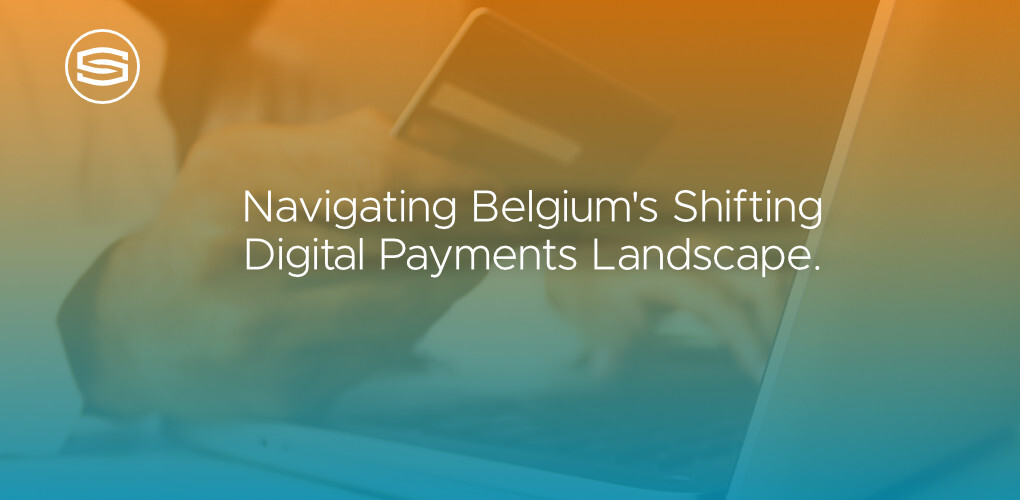
Insights & Opinions
Navigating Belgium's Shifting Digital Payments Landscape
Tue, 05 Nov 2024


As someone deeply invested in the banking and payments world, I’ve observed firsthand how Belgium’s payments industry has transformed in recent years. We all know that this transformation is a constant. For that reason, I was very pleased that EPI (European Payments Initiative) invited me to moderate a panel on the ever-evolving payments landscape with:
- Herman Konings, trend analyst, consumer psychologist, acclaimed author and speaker, NXT;
- Greet Dekocker, Managing Director, BeCom;
- Wim Van Edom, Head of Economic Affairs , Payments and Payment Innovations, Comeos;
- Ralf Hamal, Country Relationship Lead Belgium, EPI
Our panel dove into this dynamic ecosystem, bringing together key voices to discuss consumer adoption, trust, and the larger European push toward a unified payment solution.
The pandemic changed Belgium’s payment habits. Health concerns pushed people to shift from cash to contactless and mobile payments. COVID-19 made many reconsider cash payments, and although initially driven by hygiene, this shift has remained.
Today, digital payments are integral in everyday transactions, showing that changes once deemed temporary have lasting influence. 35% of Belgian consumers use a payments app at least once a week.
This conversation provided essential insights into how digital payments are evolving and where our industry is headed.
The Role of Trust in Payment Preferences
A recurring theme in discussions about payments is the importance of trust for consumer adoption. This challenge for the financial sector was highlighted by Herman Konings, who referenced the Edelman Trust Barometer, which indicates a decline in trust toward large institutions, adversely affecting the acceptance of new technologies. Notably, Belgians generally exhibit a strong trust in their banks, as evidenced by the popularity of bank-supported apps like PayconiqbyBancontact.
While Belgian consumers tend to be cautious, they are open to using digital tools from trusted institutions. To facilitate the acceptance of new payment systems, it will be essential to build trust by emphasizing security, transparency, and convenience.
Reverse Mentoring: When Younger Generations Lead the Way
There is a profound, almost emotional attachment to cash in Belgium, particularly among older generations. Herman Konings mentioned that handing over cash creates a palpable sense of “loss,” an experience absent in digital transactions. He proposed that this feeling of loss could enhance financial responsibility. Conversely, younger consumers perceive digital money as “real" money; the balance they see in their accounts reflects their actual holdings. This generational divide poses a compelling challenge for the wider adoption of digital payments.
Yet, despite these different perceptions of money, younger generations are now helping their parents and grandparents adopt digital payments—a phenomenon known as “reverse mentoring.”
This generational influence is accelerating digital adoption in Belgium, where younger consumers are comfortable with digital tools and, in turn, introduce them to their families. This digital-first mindset is spreading, and it’s inspiring to see how young people are becoming the ambassadors of change for an older generation.
Merchant Perspectives: A Delicate Balance of Cost and Convenience
The panel also highlighted the pivotal role merchants play in digital payments adoption. For many Belgian businesses, particularly smaller ones, the cost of offering digital payment options isn’t trivial. The surcharging ban in Belgium means merchants can’t pass along the extra cost of card payments to consumers, making it harder for them to steer customers toward more affordable payment methods. Many have turned to QR codes as a peer-to-peer (P2P) payment alternative to sidestep these fees.
As Greet Dekocker noted during our panel, “Merchants can really push a payment method if they want to, especially when it’s cost-effective and convenient. For example, PayconiqbyBancontact dominates with 61% of all online transactions in Belgium because it’s widely recognised and affordable for merchants, so they tend to promote it over other options.” We applauded the idea of a pan-European payment solution, ensuring that as a continent, we can grow our resilience and be less dependent on non-European schemes. To gain traction, she believed that it must offer both consumers and merchants a price point that can compete with established networks.
The Dream of a Unified Digital Payment Future in Europe
The discussion around a unified European payment platform is gaining momentum, and I see significant potential in this idea.
The European Payments Initiative (EPI), through its Wero app, is driving toward a single European payment solution, and there’s potential here for greater financial independence and resilience. This added autonomy could bring Europe back into the driver’s seat of its payments future.
Wim Van Edom echoed a thought that resonated with me: “Belgian consumers often aren’t aware of the mechanics behind their payment choices. They don’t know if it’s a card or mobile payment, and most don’t have an issue with how they pay.” This simplicity and consumer ease can become an advantage as we move toward new solutions, but only if these systems work seamlessly in the background without requiring too much from the end-user. With nearly €2.5 billion in cross-border e-commerce transactions each year, Belgium stands to gain from a seamless payment solution that would enable frictionless trade within Europe.
Looking Ahead: What Will Drive Belgium’s Payment Transformation?
In Belgium, consumer trust and cost-effective solutions for merchants will be critical to the future of digital payments. Europe’s move toward interoperability is promising, but real adoption will hinge on understanding consumer preferences, building trust, and ensuring economic viability for merchants. Younger generations’ influence is encouraging and signals a gradual but steady shift in payment preferences towards more wallet-based and payment app solutions. As these trends unfold, Belgium’s payments landscape will become more digitally inclusive and integrated with the rest of Europe.
As discussed in the panel, volume and visibility are at the heart of all this change. The more consumers see these solutions in action, the more willing they’ll be to use them. With every transaction, we’re taking one more step toward a resilient, unified European payments ecosystem that holds the promise of financial sovereignty and security for all.
Join us at The Banking Scene Art Night on November 18 in Brussels for an evening of insights and inspiration as we explore possible future scenarios and the role banks might play in society - secure your seat today!


